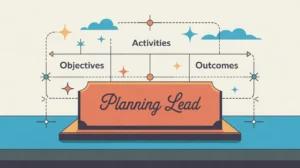What Does the MEL Associate Role Involve?
A MEL (Monitoring, Evaluation, and Learning) associate supports the collection, management, analysis, and use of data to assess program performance and inform decision making. This includes supporting the development of MEL frameworks, coordinating data collection activities, ensuring data quality, conducting basic analyses, and assisting in reporting and learning processes. The role typically sits within research, data, strategy, or program functions. In nonprofits and social enterprises, MEL associates play a key role in ensuring that programs are evidence-informed and adaptive, contributing to improved impact and accountability.
At What Level does this Role Operate?
Entry Level: This role typically reports to a MEL manager, research lead, or director of MEL. It focuses on data collection, analysis support, and reporting tasks that build the foundation for more advanced roles in MEL and evidence functions.
Relative Employability: MEL associate roles are widely available across nonprofits, social enterprises, development organizations, and research institutions. As evidence-based decision making becomes increasingly central to program design and funding, demand for MEL professionals at all levels remains strong.
Relative Pay Scale: MEL associate roles sit within entry-level pay bands, reflecting their focus on support functions and foundational MEL responsibilities.
What are the Key Responsibilities and Activities?
- Support the implementation of MEL frameworks, including indicator tracking and data collection systems
- Coordinate data collection activities in collaboration with program teams and partners
- Ensure data quality through regular reviews, cleaning, and validation processes
- Conduct basic quantitative and qualitative analyses to support reporting and learning activities
- Assist in preparing reports, dashboards, and presentations for internal and external audiences
- Help document lessons learned and support learning sessions or reflection workshops
- Maintain databases, spreadsheets, or MEL platforms to keep information organized and accessible
- Provide administrative and logistical support for evaluations, assessments, or research studies
What Core Competencies and Qualifications are Needed?
Required Qualifications and Experience
The following reflect common qualifications and experience expected for this role, while recognizing that pathways may vary by context, organization, and region.
- Academic background in statistics, social sciences, economics, public policy, development studies, or related fields, or equivalent professional experience
- Familiarity with MEL concepts, data collection methods, and analysis techniques
- Basic proficiency in data management and analysis tools such as Excel, statistical software, or visualization platforms
- Strong attention to detail and commitment to data quality
- Good communication and organizational skills
- Ability to work collaboratively with diverse teams
Key Competencies
- MEL framework and indicator implementation
- Data collection coordination and quality assurance
- Basic analysis and reporting
- Database and dashboard maintenance
- Learning and reflection support
- Administrative and logistical assistance for evaluations
How are AI and Automation Shaping this Role?
An AI-native MEL associate will look to AI and automation to streamline data collection, improve data quality, and accelerate analysis. They can use AI tools to clean datasets, flag anomalies, generate visualizations, and produce draft reports. Automation can handle routine indicator tracking, data syncing between platforms, and report updates. By leveraging these tools, MEL associates can focus more on interpretation, learning facilitation, and improving MEL processes.
What Career Pathways and Transferable Skills are Associated with this Role?
MEL associate roles can lead to positions such as MEL officer, data analyst, insights officer, or MEL manager. The skills developed in data collection, analysis, reporting, and learning facilitation are highly transferable across nonprofits, social enterprises, development agencies, and research organizations. This role provides a strong foundation for advancing into more specialized or strategic evidence and learning positions.







